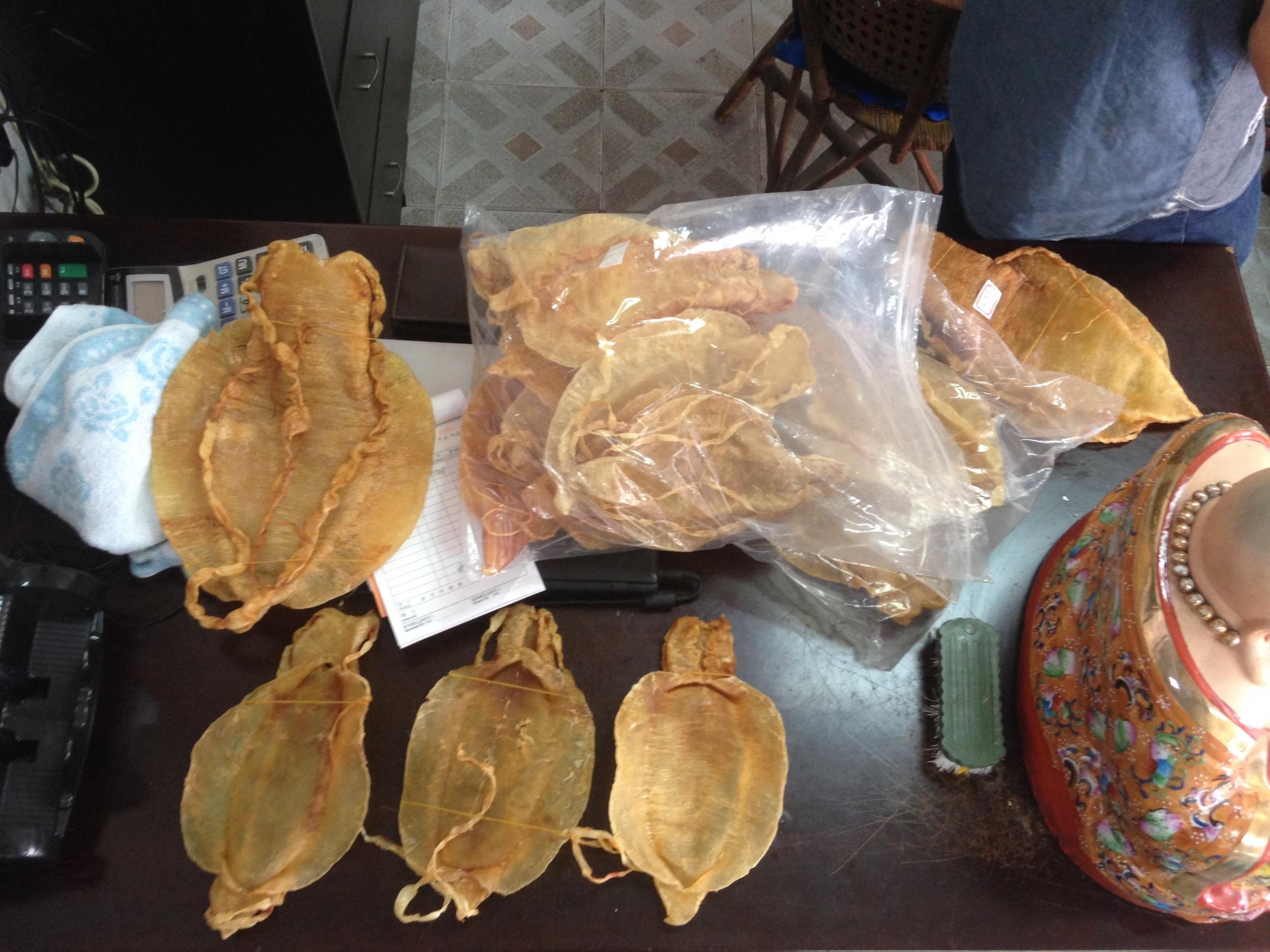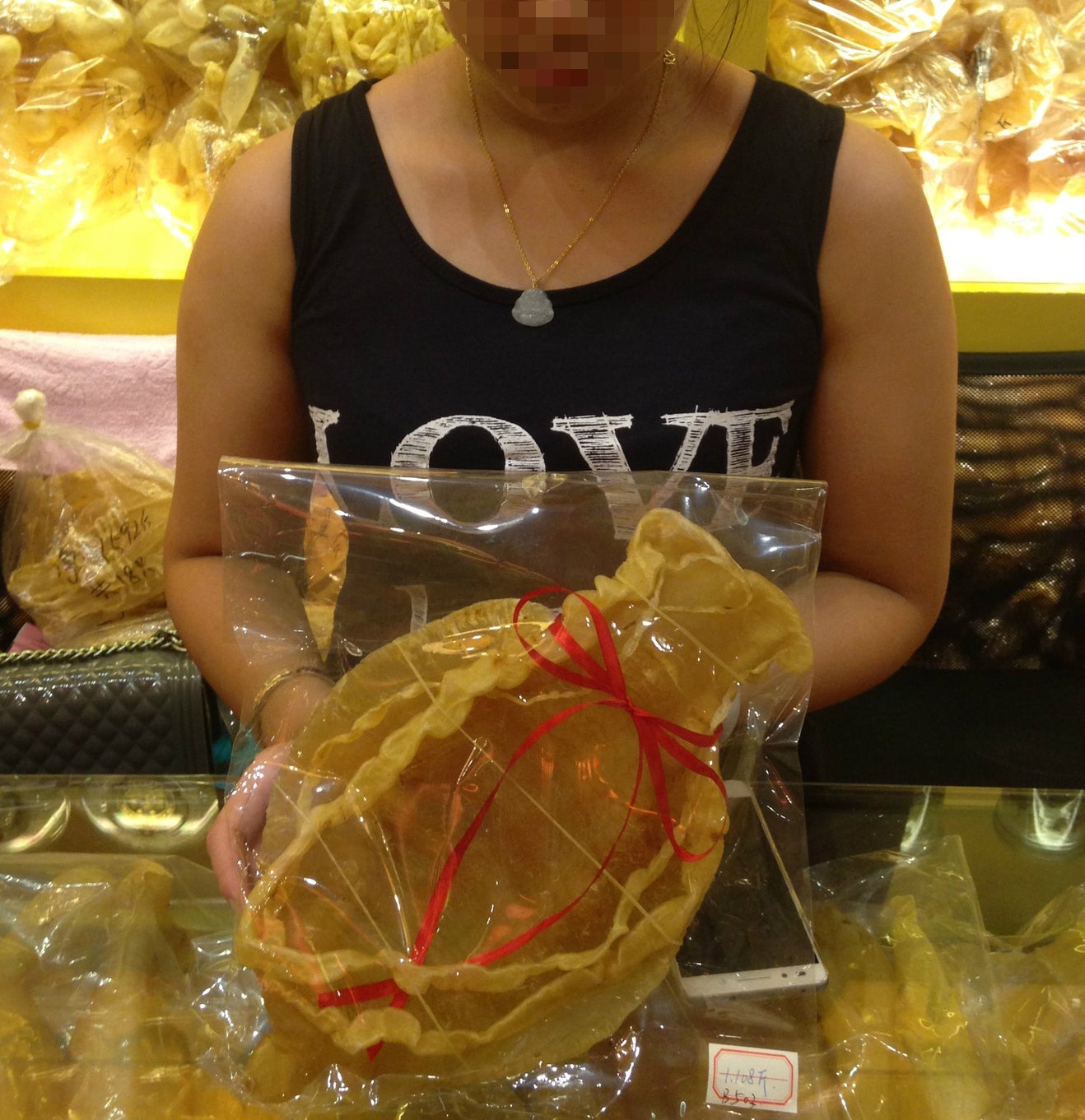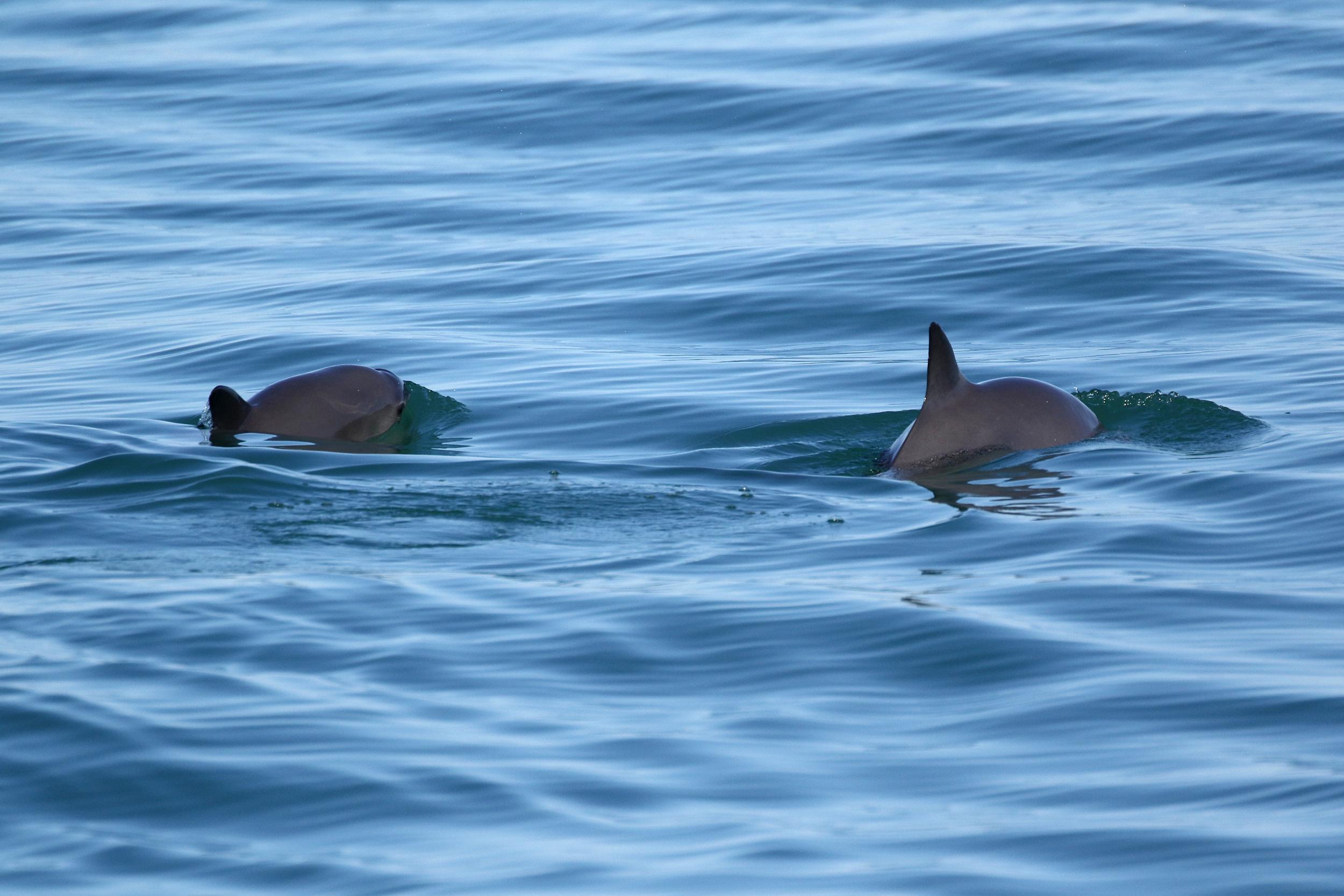China's demand for rare $50,000 'aquatic cocaine' fish bladder pushing species to extinction
Rare organ now one of the most sought-after aphrodisiacs in the world

Your support helps us to tell the story
From reproductive rights to climate change to Big Tech, The Independent is on the ground when the story is developing. Whether it's investigating the financials of Elon Musk's pro-Trump PAC or producing our latest documentary, 'The A Word', which shines a light on the American women fighting for reproductive rights, we know how important it is to parse out the facts from the messaging.
At such a critical moment in US history, we need reporters on the ground. Your donation allows us to keep sending journalists to speak to both sides of the story.
The Independent is trusted by Americans across the entire political spectrum. And unlike many other quality news outlets, we choose not to lock Americans out of our reporting and analysis with paywalls. We believe quality journalism should be available to everyone, paid for by those who can afford it.
Your support makes all the difference.China’s illegal trade in the rare totoaba fish's swim bladder is driving both it and the endangered vaquita, the world's smallest porpoise, to the brink of extinction, according to a new report.
Numbers of the vaquita have been decimated by illegal poachers using gill nets to trap the totoaba fish, nicknamed “money maw” or “aquatic cocaine” for its staggeringly high price tag on the Asian market.
While prices have fallen in recent years, some large totoaba bladders can still fetch more than $50,000 each on the Chinese black market.
Both species are found only in the northernmost corner of Mexico's Cortez Sea and both are critically endangered, with only 60 vaquita thought to be left in the wild.
The totoaba fish are highly sought after for their alleged health benefits in treating circulatory and skin problems and are believed by some to hold aphrodisiac properties.
The Environmental Investigations Agency (EIA) are now warning of a “buoyant trade” in China, with “no attempt to curb the practice” despite repeated condemnation from environmental activists.
EIA oceans campaign head Clare Perry said the Chinese government needed to acknowledge its vital role in saving the endangered vaquita species.

"Trade is happening openly of the totoaba in mainland China despite it being illegal, and we actually found a whole new center for the trade in Shantou that had clearly seen no efforts from the Chinese government," she told The Independent.
"Given the information out there, it's quite a shocking lack of law enforcement when you have the survival of a species at risk."
Ms Perry also warned of a lack of incentive for Mexican smugglers to stop the poaching, warning it was a low risk alternative to cocaine smuggling, with high reward.
She said: “The trade has been going on for over a century.
"However, when Mexican fisherman started making a lot of money, the organised crime groups got involved, as they do with all of these wildlife products where they see quick profit.
“That’s when the trade really exploded.”
Julian Newman, EIA’s campaigns director said dual responsibility needed to be taken to effectively stamp out the trade between the Mexican suppliers of the maw and the Chinese market driving the fishing.
In 2015, Mexican federal environment agency Profepa revealed the commodity was worth more than cocaine in the country, with one kilo of bladder selling for the same as 1.5 kilos of the drug.
In an attempt to stamp out the practice, the Mexican military scours the 5,019-square mile stretch of Californian Gulf several times a day looking for poachers.
Speaking to Mexican newspaper Reforma, one army chief, who wished to remain anonymous, said: “Traffickers entered the business forcefully, applying their organisational structures and their corrupting influence.
“Organised crime has established networks, routes, contacts, points of sale and padrinos, or sponsors, in official institutions.
“What was once used to traffic drugs was implemented for the totoaba.”
However, the Mexican Secretariat of Environment and Natural Resources (Semarnat) reported that traffickers often camouflaged the bladders with other legally-fished maw.
One environment official said: “The training of police agents isn’t enough, be it at the municipal, state or federal levels.
“The situation is the same with the Army, Navy and customs personnel: they’re not trained to detect these crimes.”

The vaquita is the smallest and rarest cetacean species, closely resembling the common porpoise.
Ms Perry said it was not clear that China had a full understanding of the implications of the totoaba trade for the vaquita.
She said: “Domestically, China must stamp out the illegal trade, but also some very swift awareness raising needs to happen among business traders and consumers to save this critically endangered species.”
Subscribe to Independent Premium to bookmark this article
Want to bookmark your favourite articles and stories to read or reference later? Start your Independent Premium subscription today.
Join our commenting forum
Join thought-provoking conversations, follow other Independent readers and see their replies
Comments